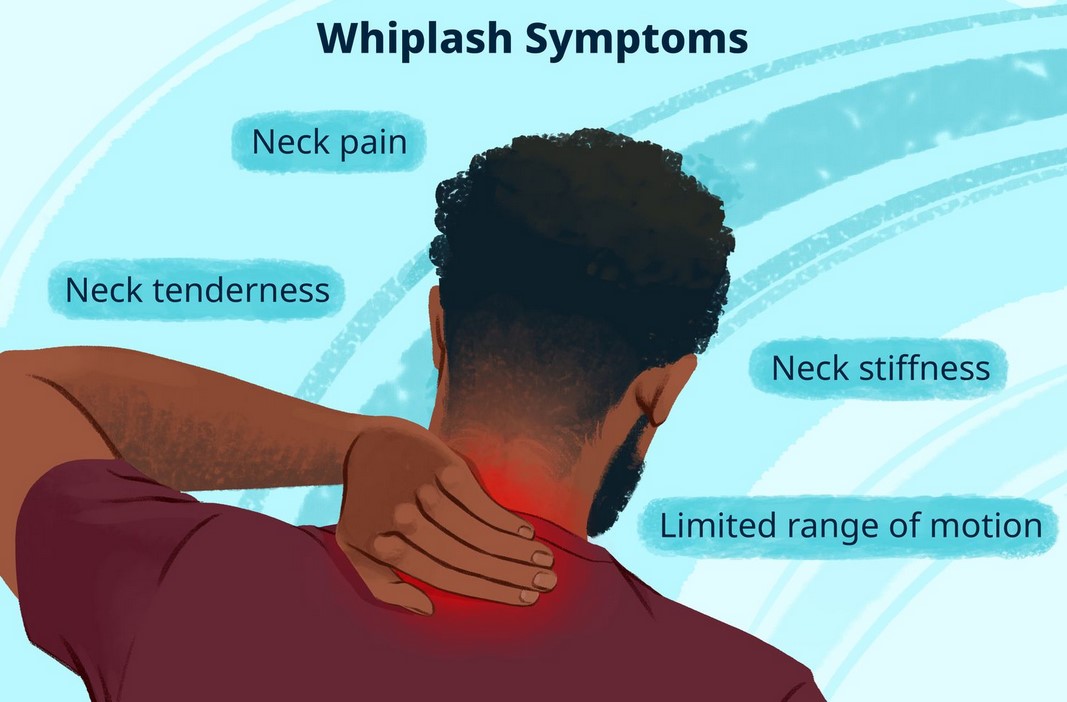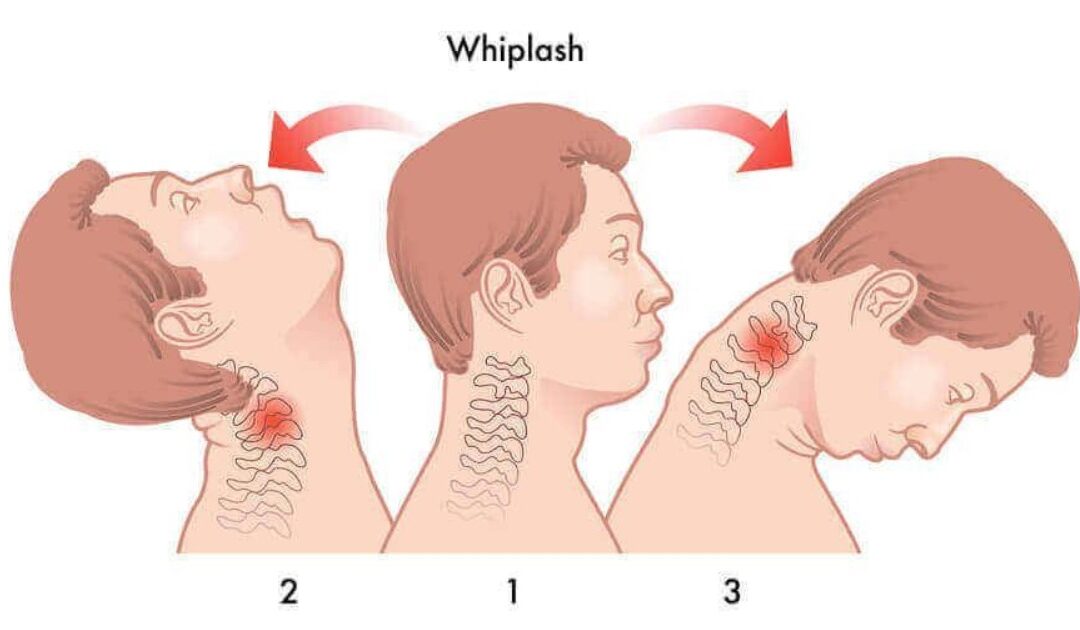Whiplash: Frequently asked questions
Whiplash is the most common injury many people experience after a motor vehicle accident. If you’ve had an accident which caused rapid forwards and backwards movements of the head and your neck is now sore, there’s a chance you have a whiplash injury.
What is whiplash?
Whiplash is an injury arising from sudden, forceful movements of the neck. Typically occurring in car accidents, falls, or sports- related incidents. Whiplash symptoms can be immediate or develop over the first 6-24 hours post-accident. Whiplash can lead to a range of symptoms, including neck pain, stiffness, reduced neck movements, headaches, altered sensation and post-traumatic stress responses. However, there is no need to panic as with prompt care and treatment you can regain your prior strength and mobility.

When can I start treatment?
Many people are confused as to when treatment should start for whiplash. At Power Physiotherapy we recommend that treatment for whiplash begins as soon as possible after the injury, ideally within the first few days. Early intervention can help prevent the development of chronic pain and promote faster healing. At Power Physiotherapy we can confidently assess the structures in your neck to rule out any serious pathology and give you peace of mind before commencing your tailored treatment plan.
If your doctor has not mentioned physiotherapy after a whiplash injury, then we strongly recommend that you have this conversation with them. There is a lot of scientific evidence indicating that early intervention of physiotherapy treatment results in better outcomes and recovery times.
How can physiotherapy help me?
Physiotherapy plays a pivotal role in your recovery. Once we’ve assessed your neck, we’ll start with gentle exercises to improve your neck’s range of motion and alleviate muscle tension. Gradually, strengthening exercises can be incorporated to rebuild the stability of the affected muscles. Manual therapies like massage, joint mobilisations and gentle stretches will be employed to improve circulation and therefore tissue healing and reduce pain or muscle spasm.
Having an injury can impact on your homelife, work and leisure activities. At Power Physiotherapy we discuss your needs and identify the important goals that we need to achieve together. The focus on treatment is getting you back to the things you love to do or need to do as fast as possible.

How can I help myself?
Self-care is essential in helping yourself get better faster. Starting with pain management we often recommend you start with the application of ice packs every 2 – 3 hours for a maximum of 20 minutes (unless you have sensory issues). Later you will be advised when you can start heat therapy with hot packs. Both ice and heat are commonly used for managing your pain, however
our physiotherapists will advise you which one to use and when.
Stay as active as you can. It’s important to continue to gently move the neck and avoid staying in the same position for long periods of time. It’s important to return to your normal activities (including work) as soon as possible. Try going for an easy walk either on land or in the pool. Staying active within your pain limits is helpful in maintaining a positive attitude.
Managing your pain means that you may need to take medication to help you along. These could be as mild as Panadol (if you are able or allowed to take them). However, if you’re having high levels of pain, it’s important to speak to your doctor or pharmacist for pain relief options. If you are not able to take tablets, then creams may be another option for you.
How long will it take to get better?
 We can provide more information on this once we’ve assessed you in the clinic as every person is different. The duration of recovery depends on the injury severity, adherence to the treatment plan, and your body’s individual response. Mild cases of whiplash may resolve in a few weeks, more severe cases could take several months. It’s important to remain patient and consistent with clinic sessions and home exercises. Regular communication of any concerns and progress with your physiotherapist allows us to adapt or modify your treatment plan as required.
We can provide more information on this once we’ve assessed you in the clinic as every person is different. The duration of recovery depends on the injury severity, adherence to the treatment plan, and your body’s individual response. Mild cases of whiplash may resolve in a few weeks, more severe cases could take several months. It’s important to remain patient and consistent with clinic sessions and home exercises. Regular communication of any concerns and progress with your physiotherapist allows us to adapt or modify your treatment plan as required.
Last thoughts
Whiplash may present immediate challenges, but with the guidance of the dedicated team at
Power Physiotherapy and your active participation, recovery is attainable. By promptly seeking treatment, engaging in physiotherapy prescribed exercises, maintaining good self-care practices, and committing to your recovery, you can expect to gradually regain your strength, mobility, and overall well-being. There is no reason why you can’t return to the life you love.


 We can provide more information on this once we’ve assessed you in the clinic as every person is different. The duration of recovery depends on the injury severity, adherence to the treatment plan, and your body’s individual response. Mild cases of whiplash may resolve in a few weeks, more severe cases could take several months. It’s important to remain patient and consistent with clinic sessions and home exercises. Regular communication of any concerns and progress with your physiotherapist allows us to adapt or modify your treatment plan as required.
We can provide more information on this once we’ve assessed you in the clinic as every person is different. The duration of recovery depends on the injury severity, adherence to the treatment plan, and your body’s individual response. Mild cases of whiplash may resolve in a few weeks, more severe cases could take several months. It’s important to remain patient and consistent with clinic sessions and home exercises. Regular communication of any concerns and progress with your physiotherapist allows us to adapt or modify your treatment plan as required.



